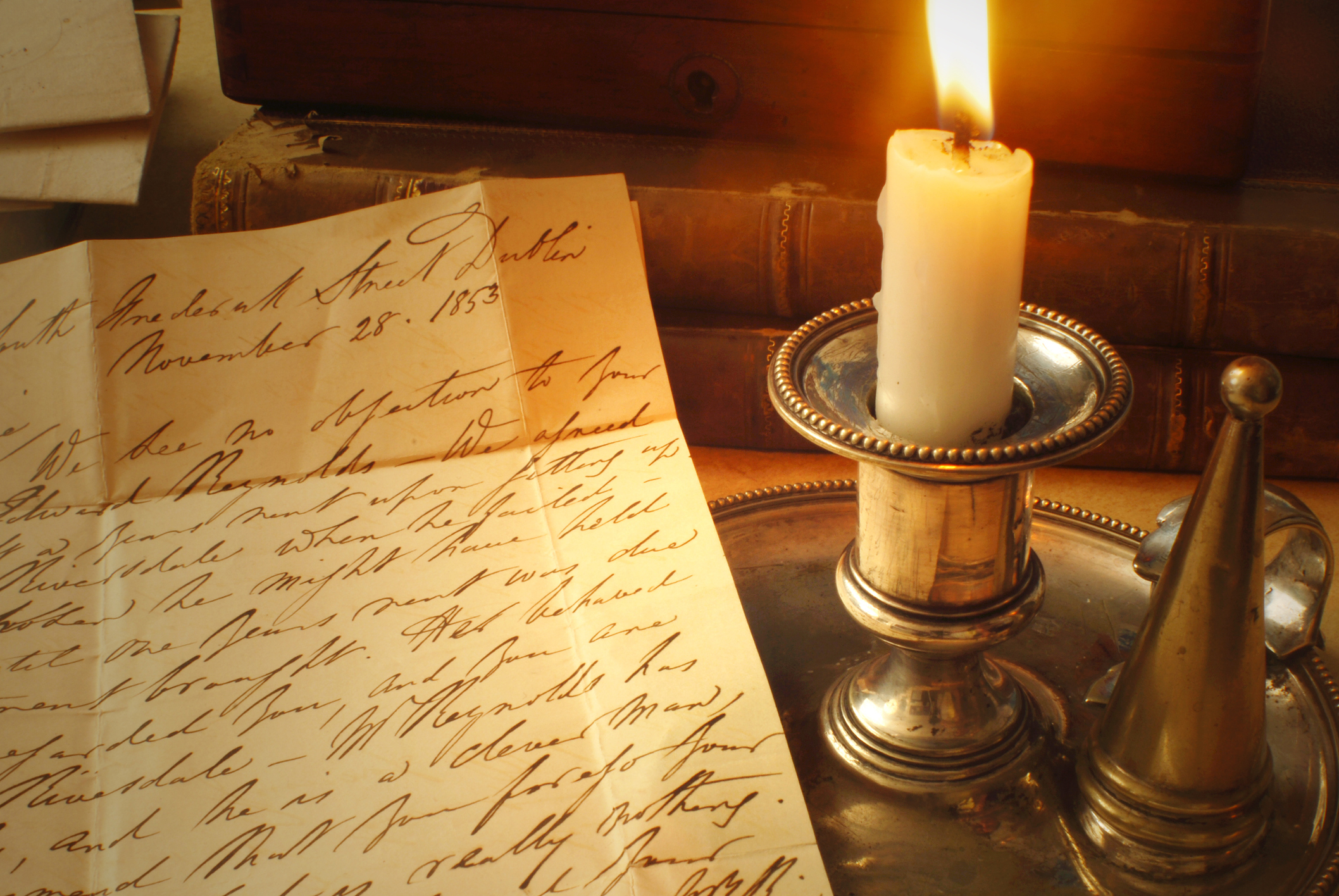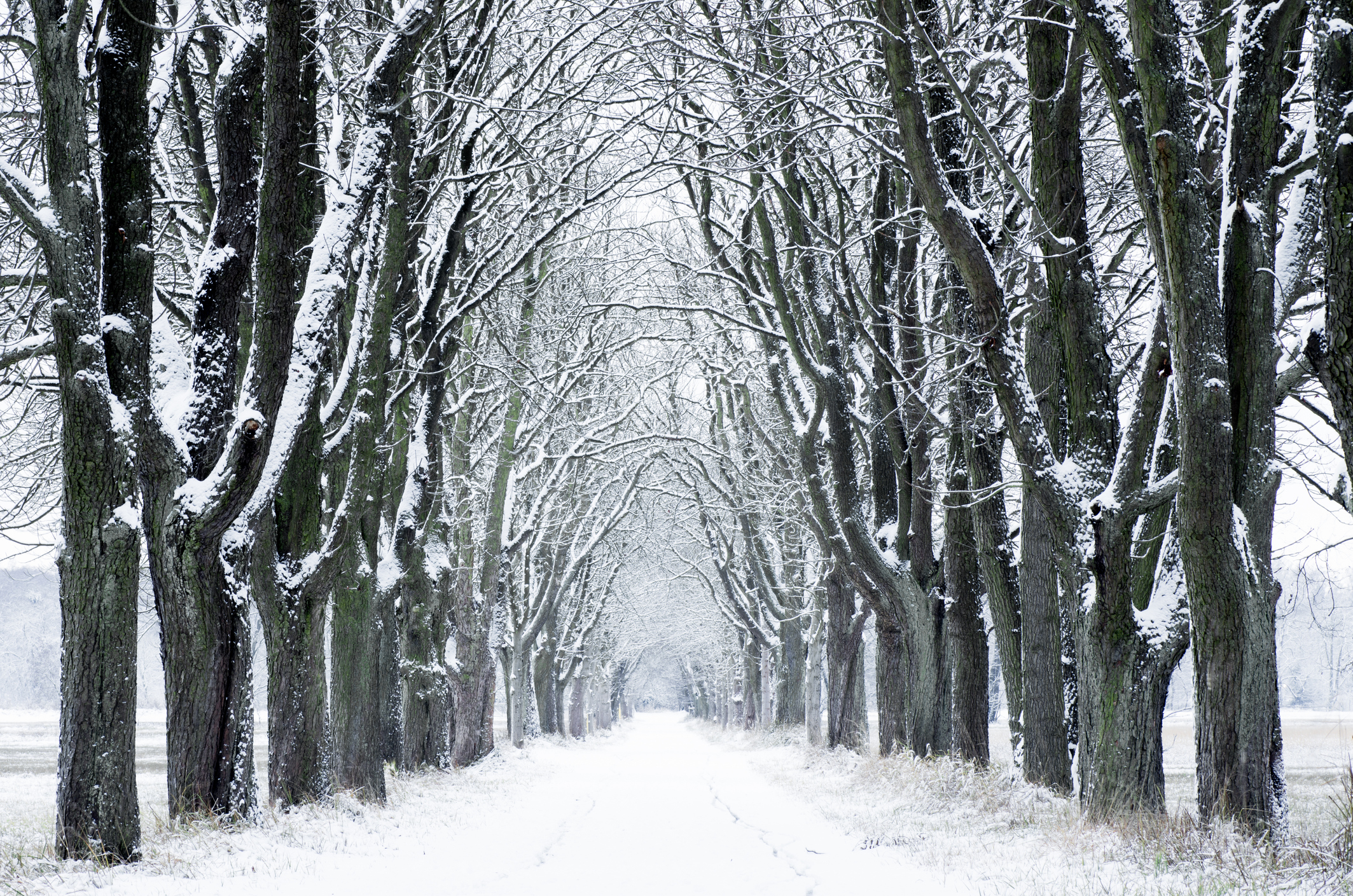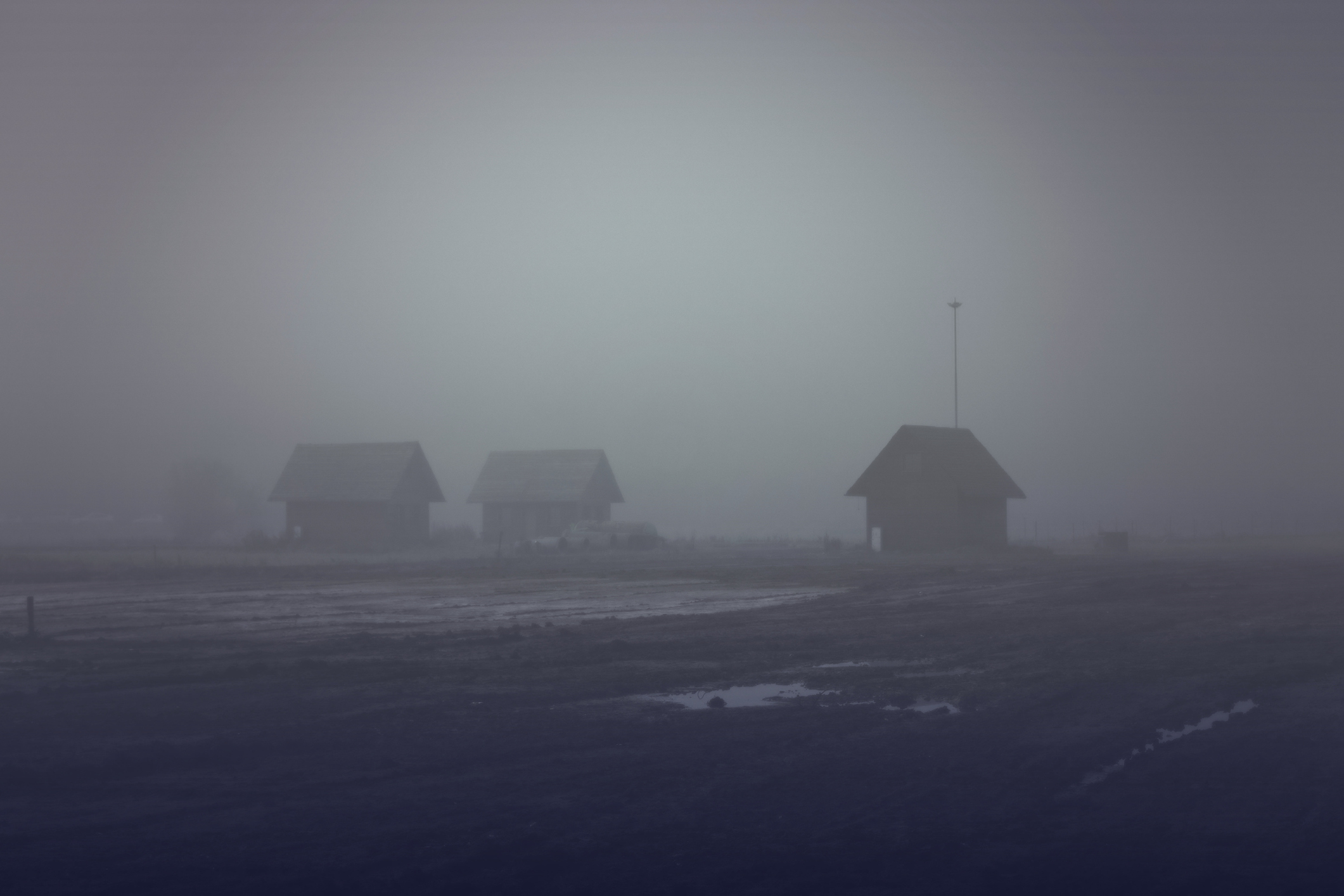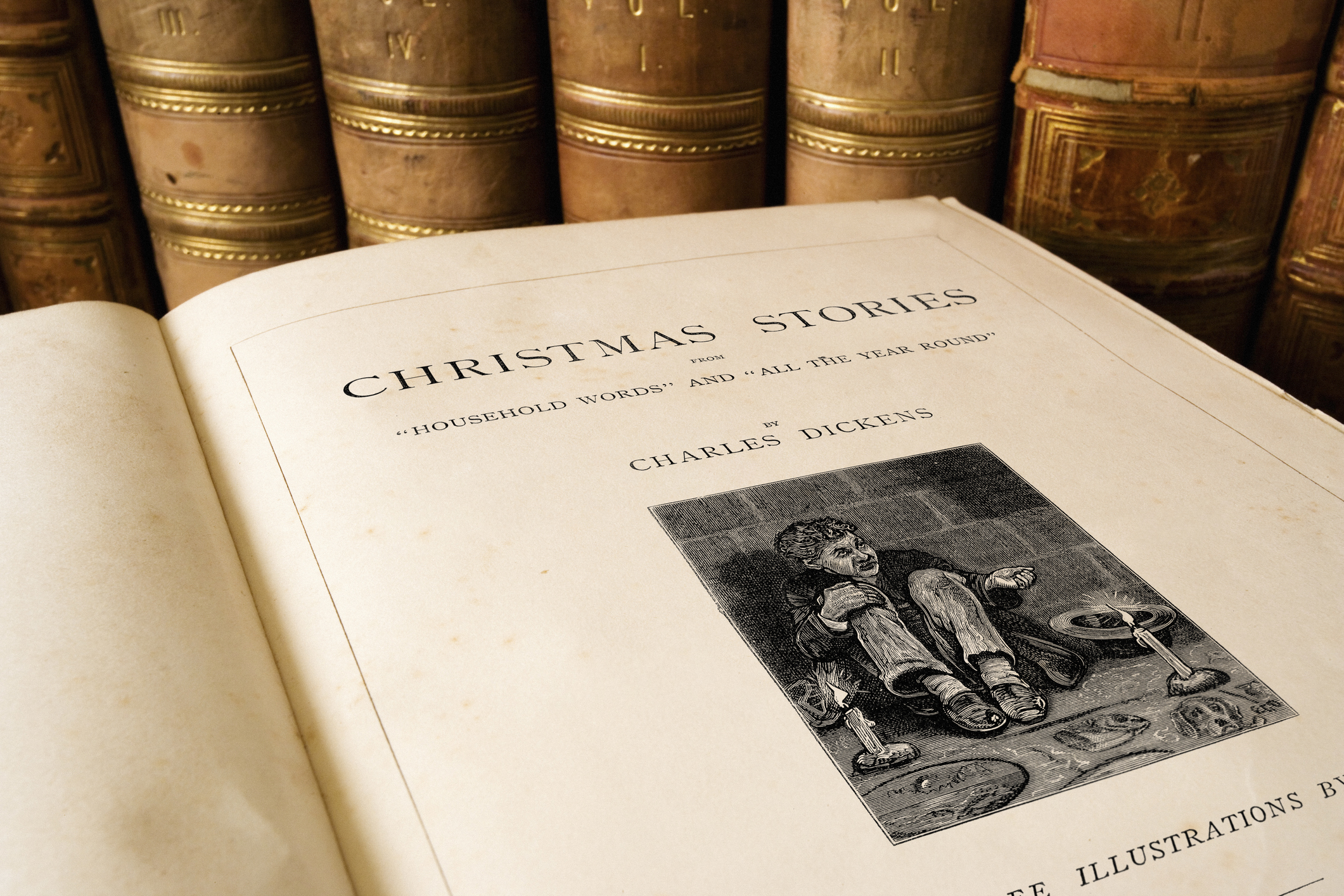Those Old Christmas Spirits
Christmas ghost stories to chill you on a midwinter night, and spirits to warm you back up
All photos by Keith Allison.
'“And I hope you'll 'ave a merry Christmas, sir,' she said, in a raucous, wheezy voice that suggested spirits." — "The Kit-Bag," Algernon Blackwood
It sometimes surprises people to learn that a velvet-clad heathen such as me adores the Yuletide season. But such is the case. I love the music, the decorations, the lights, the food, the many many many boozy drinks, the topcoats... and of course, the ghosts. Christmas is a holiday oddly well-suited for a tale of terror. There is something eerie in the air, something to do with long, dark winter nights, ancient Pagan rites, fireplaces, spiked drinks, and bleak, snowy landscapes. Once long ago, I read an article about how, in certain parts of Scotland, Christmas eve was not a time for merriment. It was a night of horror during which terrified people would barricade themselves in their homes and stand guard all night against an onslaught of murderous tomte or fairy folk or whoever else was out in that deep, dark night causing mischief.
Still, at least the family was together.
The spooky undercurrents of Christmas manifested more bodily in 1843 when Charles Dickens wrote the ungainly-titled A Christmas Carol. In Prose. Being a Ghost Story of Christmas, which most people more commonly and more reasonably know simply as A Christmas Carol. Since then, an occasional dash of ghostly spirits has been a tradition for many. Just as Dickens helped define the tradition in 1843 with his short story, the BBC did it again in 1971 when, looking for programming to fill the Christmas Eve dead time, they decided to air an adaptation of "The Stalls of Barchester," a ghost story written by M.R. James.
James, though not as famous internationally as Dickens, was one of England's most beloved authors of ghost stories. His stock in trade were moody tales populated by awkward academics who blame any local weirdness on "papistry" and inevitably run afoul of some supernatural force. To call them understated is a bit of an...err... well, you know. James does not deal in visceral horrors. His stories are slow and build to a conclusion that is not so much shocking as it is unsettling.
Here are a few of my favorite holiday ghost stories. Throw on your silk robe, fetch a cocktail—we'll provide the recipes—and prepare to chill yourself on a chilly night. Unless, that is, you spend the shortest day and longest night of the year locked in mortal combat with the tomtes forcing their way down your chimney. I told you to keep that Yule Log ablaze!
"Oh, Whistle and I'll Come to You, My Lad" by M. R. James (1904)
Taking its title from a Robert Burns poem, this is perhaps James' most famous story, thanks largely to a 1968 BBC adaptation starring Michael Hordern. James' story spins the tale of a stodgy academic named Professor Parkin who, having no better options for his Christmas holiday, heads to the coast to putter about in some nearby ancient ruins. When he finds an old flute with a mysterious inscription, he decides to give it a toot. The lesson of this story is, then, never give mysterious flutes found in ancient pagan ruins a casual toot. Because soon, strange things begin to happen... and not even the Pope could be responsible for them all!
It's Christmas. You're on the coast, and something decidedly inhuman is coming for you. Soothe your nerves with a Mele Kalikimaka Mai Tai.
1 oz Maggie’s Farm Pineapple Rum or Plantation Pineapple Rum
1/2 oz Cointreau orange liqueur (silver medal, 2018 NY International Spirits Competition)
3/4 oz fresh squeezed lime juice
1/4 oz simple syrup
1/3 oz orgeat
1 bar spoon Clement Mahina Coco
Float of Plantation Original Dark Rum
Add everything but the dark rum to a shaker with ice. Shake well, pour into a Mai Tai or rocks glass, then float the dark rum. Garnish with speared red and green maraschino cherries. It's Christmas!
“The Kit-Bag,” by Algernon Blackwood (1908)
While Blackwood's "The Wendigo" fits the mood just as well, "The Kit-Bag" is even better, being the tale of a murder committed during the Holiday season. Having concluded his part in the grisly trial, young lawyer Johnson is looking forward to hitting the slopes in the Swiss Alps. He borrows a rucksack from a friend and is disappointed when a rather ratty, gnarled old bag is delivered. But the age is the least of the increasingly creepy things about the bag. And what's with those muffled footsteps he hears sneaking around outside his apartment? And is that... is that blood?
Speaking of blood, a tale as gruesome as "The Kit-Bag" deserves something red and a little menacing. A Winter Negroni perhaps?
1 oz Amaro Averna
3/4 oz Antica Torino Sweet Vermouth
3 dashes Scrappy's Chocolate Bitters
3 drops Bittermens Xocolatl Mole Bitters
Add everything to an old fashioned glass with ice and stir well.
“Between the Lights,” by E. F. Benson (1912)
It's one thing when the Little People come for you in the cold dark of a midwinter night. But what about when they come for you in the daytime? This is the horror that befalls hapless Everard in E.F. Benson's chiller of a short story. When, one beautiful day, a Christmas party full of badminton and billiards and mirth making leads inevitably to a round of ghost stories, poor Everard relays to his rapt guests the tale of a waking nightmare which seized him the previous Christmas Eve. It was a day that began gloriously, with a game of croquet, the dahlias still in bloom, and perfect weather for a ramble along the coast. And then came the fog. And in the fog…
But let us not tarry here, in this place where sudden waking nightmares and sea mist attack us and bring with them ancient, unnamable things. Let us cut this fog with a Fogcutter.
1/2 ounce D’USSÉ VSOP Cognac (silver medal, 2018 NYISC)
1/2 oz Dingle Gin
1 oz fresh squeezed lemon juice
1/2 oz Pierre Ferrand Dry Curaçao
3/4 oz orgeat
Combine all ingredients with crushed ice in a shaker. Shake well and serve over a mountain of crushed ice in a tiki mug of your choosing. I suggest Geeki Tiki's Mummy tiki. Why, you wonder? We're already doing Christmas ghosts and tiki drinks? What could the mummy possibly have to do with the holiday? Well, Universal's classic tale of uncanny horror, The Mummy, was released December 22, 1932... just in time for Christmas.
“Smee,” by A. M. Burrage (1931)
A game of Christmas Eve party hide-and-seek sounds fun. But for god's sake, man, not when you play it in a house where lurks the spirit of a dead little girl!!! You know they're always waiting in dark corners to whisper at you. Burrage was best known as a writer of adventure fiction for youngsters, and indeed the unlucky partygoers in "Smee" have fewer years on them than the average M.R. James professor, but don't let that fool you into thinking the horror is any less paralyzing. "I know there were thirteen of us playing the game, and there were only twelve people in the house..."
Playing hide-and-seek (or smee) seems frivolous... until the ghosts start participating. And the snowy-looking Brandy Alexander may seem a frivolous drink, but have a couple and there will be a terrible price to pay (the next morning).
1 oz Crème de cacao
1 oz Cream
Add all the ingredients into a shaker with ice and shake well. Strain into a chilled cocktail glass. Garnish with freshly grated nutmeg.
"The Signal-Man," by Charles Dickens (1866)
I mean, yeah, sure. It should be "A Christmas Carol." Everyone knows that. But therein lies the problem: everyone knows that. It's a fantastic tale, but there's something about Dickens' somewhat lesser-known "The Signal-Man," the unnerving tale of a night spent with a doomed soul bearing a terrible curse. It was part of the original A Ghost Story For Christmas specials. It's the Doctor's favorite Dickens ghost story (as in Doctor Who; "The Unquiet Dead" from 2005). And it has hanging about such an air of gloom and melancholy—none of A Christmas Carol's redemption or merriment. And if you are going to end a round of Christmas ghost stories, you need one that makes people shudder, clear their throats, and say, "how about a cup of wassail to cheer things up?"
1 gallon apple cider
2 cups orange juice
1 cup lemon juice
1/2 cup sugar
2 teaspoons cinnamon
1 teaspoon cloves
1 teaspoon nutmeg
1 orange, sliced
1/2 cup brandy
In a large saucepan, add it all together. Slowly bring to a boil, then leave it there for one minute. Reduce heat and simmer for 30 minutes then pour it in a punch bowl with sliced oranges floating in it.
"I don’t know what to do! I am as light as a feather, I am as happy as an angel, I am as merry as a school-boy. I am as giddy as a drunken man. A merry Christmas to every-body! A happy New Year to all the world! Hallo here! Whoop! Hallo!” — Scrooge, "A Christmas Carol"





